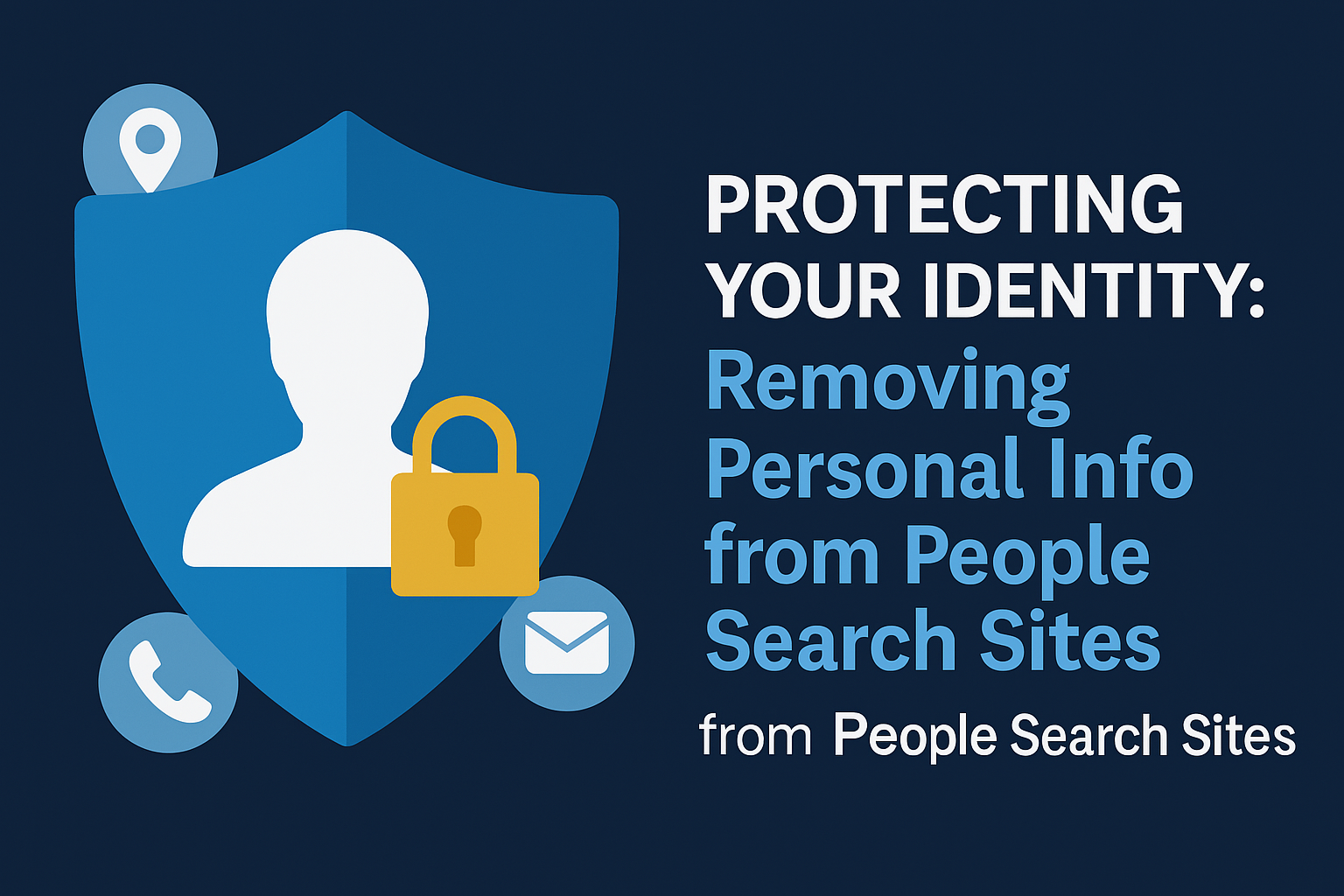Estimated reading time: 4 minutes
Table Of Content
Why People Search Sites Are a Privacy Risk
People search engines like Whitepages, Spokeo, MyLife, BeenVerified, and TruthFinder compile data from public records, social media, and commercial sources. While they claim to promote transparency, the reality is more invasive.
These platforms:
- Expose your full name, age, current address, and previous residences
- List phone numbers, email addresses, and household members
- May display criminal records, court judgments, and property ownership
- Can be exploited by scammers, identity thieves, and stalkers
Having your life details available at the click of a button is not just a privacy issue—it’s a security threat.
Where Do They Get Your Information?
People search sites are powered by data brokers that gather and sell information. Some common sources include:
- Voter registration rolls
- Real estate transactions
- Vehicle registrations
- Social media profiles
- Public court records
- Online shopping databases
Once your data is online, it’s aggregated across multiple websites—creating a persistent web of personal exposure.
How to Remove Your Info From People Search Sites (Step-by-Step)
1. Identify the Sites Listing Your Information
Start by Googling your name with combinations like:
textCopyEdit"Your Name" + address
"Your Name" + phone number
"Your Name" + site:whitepages.com
Create a list of all the websites displaying your details.
2. Opt Out of Major People Search Sites
Each site has its own opt-out procedure. Here are some of the most common:
- Whitepages Opt-out
- Spokeo Opt-Out Removal
- BeenVerified Opt-out instructions
- MyLife: Requires calling (888) 704-1900 or emailing privacy@mylife.com
- TruthFinder Record Removal
🛑 Pro tip: Some sites may take days to process requests and may republish your info later unless monitored.
3. Use a Scripted Opt-Out Letter
Here’s an example of an email template you can use to request removal of personal information from people search sites:
textCopyEditSubject: Data Removal Request Under Applicable Privacy Rights
To Whom It May Concern,
I am writing to request the removal of all personal information related to [Your Full Name, Address, and Date of Birth] from your site and database under applicable privacy regulations.
Please confirm this removal by replying to this message.
Thank you,
[Your Name]
4. Track and Monitor
Use reputation monitoring tools like:
- Mention
- Google Alerts
These platforms help monitor republishing and new exposures.
The Limitations of Manual Removal
Removing personal info is not a one-time process. Here’s why:
- New data gets added constantly
- Some sites refuse to honor opt-outs
- Data brokers may sell your info to other aggregators
- You may miss lesser-known people search websites
That’s where professional help becomes critical.
Defamation Defenders: Comprehensive Privacy Protection
At Defamation Defenders, we go beyond simple removals. Our privacy protection service includes:
- Exhaustive audit of 100+ people search sites
- Bulk data removal submissions
- Ongoing monitoring and suppression
- Legal takedown notices when applicable
- SEO strategies to suppress persistent listings
🔒 Get a free online reputation & privacy audit now
SEO Suppression: Making It Harder to Find Your Info
When data can’t be removed, we turn to search engine suppression.
Strategies Include:
- Publishing high-authority pages with your name
- Creating business profiles and social media content
- Using schema markup and keyword optimization
- Getting mentions on trusted websites and publications
This process buries people search links below Page 1 on Google, where they get far less visibility.
Legal Tools That Can Help
Certain privacy laws can be used to force takedowns:
- CCPA (California Consumer Privacy Act): Allows California residents to request data removal
- GDPR (General Data Protection Regulation): Applies to European citizens, even if listed on U.S. websites
- State-Specific Data Broker Laws: Maine and Vermont require broker registration and opt-out transparency
When legal backing is needed, Defamation Defenders coordinates with attorneys for:
- Cease and desist letters
- Court petitions
- Privacy rights enforcement
How Personal Info Exposure Can Harm You
🛑 Identity Theft
Cybercriminals use this data for:
- Account takeovers
- Phishing scams
- Tax fraud
🛑 Stalking and Harassment
Publicly visible addresses make you vulnerable to:
- Personal harassment
- Doxxing
- Domestic abuse risks
🛑 Career Damage
Employers may Google you and see:
- Court appearances
- Criminal records (even dismissed)
- Personal relationship history
Protecting your personal data means protecting your life, livelihood, and safety.
Frequently Asked Questions
Most removals process in 7–30 days. Monitoring is required to prevent republishing.
Only negatively listed people search pages are targeted. Positive profiles remain intact or are enhanced.
Most sites are free to opt out, but doing it for 100+ sites manually is extremely time-consuming.
Yes, if the info is public record. However, laws like CCPA and GDPR offer you the right to remove it.
No. Only your own information can be removed unless you’re a legal guardian or acting with power of attorney.
A suppression strategy and/or legal enforcement can be used to reduce visibility or compel removal.



